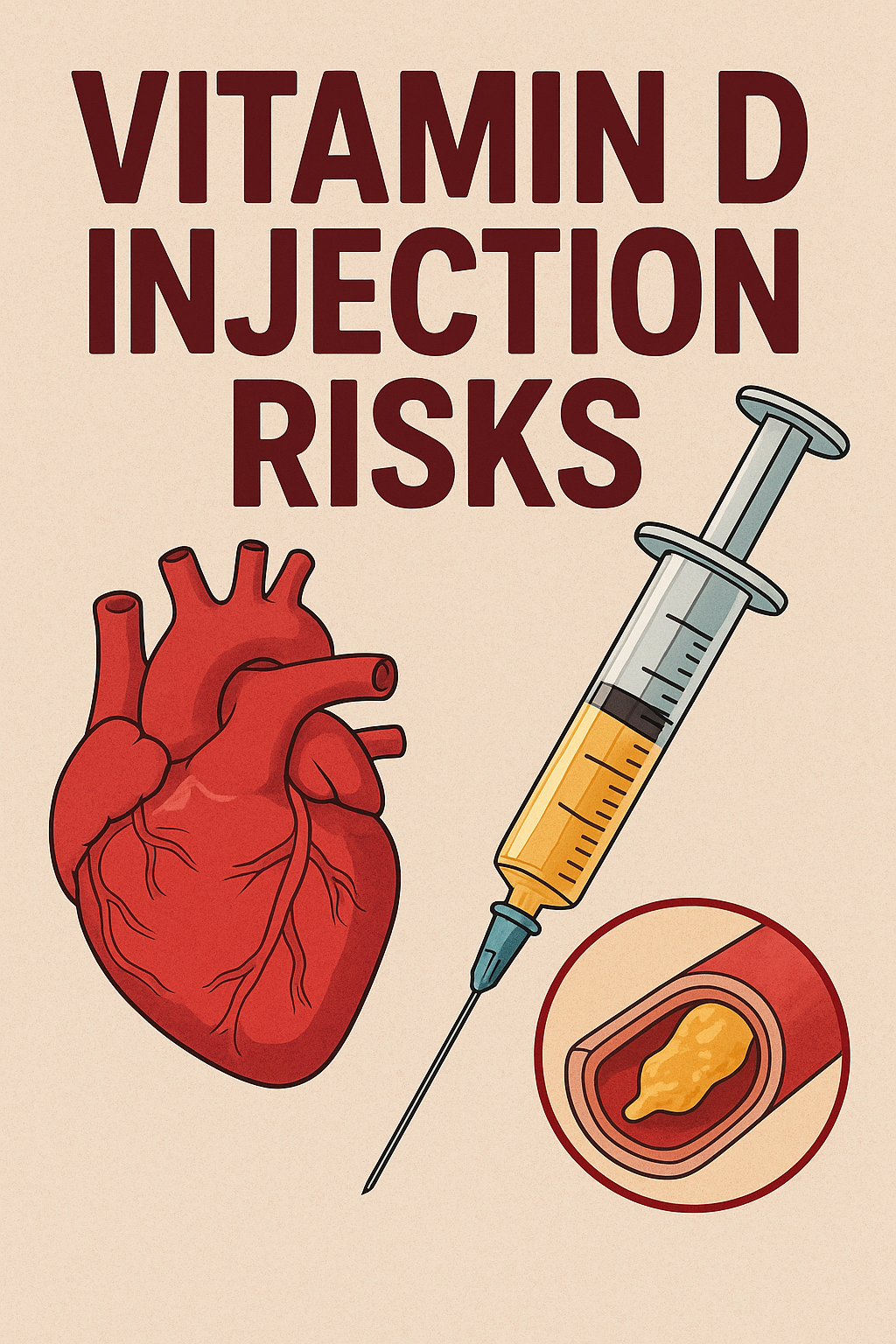Introduction
Vitamin D, known as the sunshine vitamin, is vital for bone strength, immunity, and overall health. But in recent years, a growing number of people are turning to Vitamin D injections—especially when they suffer from deficiencies. While these shots can be beneficial in some cases, emerging research and clinical reports suggest that high doses of Vitamin D—especially via injection—can have concerning side effects. Many people turn to Vitamin D injections (shots) when supplements or sunlight aren’t enough. While these shots can quickly correct a deficiency, very few people know about their side effects — especially the potential link between Vitamin D and blocked arteries.
Common Side Effects of Vitamin D Shots
When taken in high doses or without proper supervision, Vitamin D injections can cause:
- Nausea, vomiting, and appetite loss
- Weakness and fatigue
- Frequent urination and dehydration
- Kidney problems due to calcium overload
- Vitamin D toxicity (hypervitaminosis D), a dangerous condition caused by excessive levels in the blood
Most of these symptoms stem from how Vitamin D affects calcium absorption in the body.
Patanjali: The Essence of Ayurveda for a Healthy Lifestyle
The Hidden Risk: Vitamin D and Blocked Arteries
The most concerning, yet least discussed, side effect of excessive Vitamin D is its connection to arterial calcification — the buildup of calcium in artery walls.
How It Happens:
- Vitamin D boosts calcium absorption in the intestines.
- Extra calcium doesn’t always strengthen bones; instead, it may stay in the bloodstream.
- This calcium can deposit in arteries, leading to hardening and narrowing of blood vessels.
This process increases the risk of:
- Atherosclerosis (blocked arteries)
- Heart attack
- Stroke
Read more: about the Vitamin D injections
Why No One Talks About This Risk
Despite evidence, the topic is often overlooked. Reasons include:
- Public focus on deficiency rather than overdose risks
- Limited awareness among patients and even healthcare providers
- Influence of supplement marketing, which highlights benefits while minimizing side effects
Who Is at Higher Risk?
Certain groups should be especially cautious:
- People taking calcium supplements alongside Vitamin D
- Patients with kidney disease or impaired kidney function
- Individuals receiving regular high-dose Vitamin D shots without frequent testing
Safer Alternatives and Precautions
To enjoy the benefits of Vitamin D while avoiding risks:
- Get tested before starting high doses or injections
- Choose natural sunlight exposure (15–20 minutes daily) whenever possible
- Include Vitamin D-rich foods such as fatty fish, eggs, and fortified milk
- If prescribed injections, ensure regular monitoring of calcium and Vitamin D blood levels
- Ask your doctor if smaller, more frequent doses are a safer option

